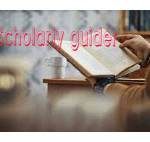Initial Post Instructions
For the initial post, respond to one of the following options, and label the beginning of your post indicating either Option 1 or Option 2:
Option 1: What does it mean when you have learned something? Identify and describe an example of something you have learned recently using either the principles of classical conditioning, operant conditioning or observational learning/social-cognitive learning. Ensure that you describe your example using the appropriate termin...
Read More
SOLUTION
Part one: The Phenomenon of Flashbulb Memories
According to Feldman, flashbulb memories are when an individual is able to recall details of a very specific moment emotionally charged (Feldman, pp.217, 2018). These moments may refer to public events, but also personal moments of happiness or sadness. For instance, flashbulb memories can be an accident, the loss of a friend or a moment of success. Flashbulb memories appear as a photographic memory. The term “flashbulb memories” was int...
Read More
Initial Post Instructions
For the initial post, respond to one of the following options, and label the beginning of your post indicating either Option 1 or Option 2:
Be sure to make connections between your ideas and conclusions and the research, concepts, terms, and theory we are discussing this week.
Follow-Up Post Instructions
Respond to at least two peers or one peer and the instructor. If possible, respond to one peer who chose an option different than the one you chose. Further t...
Read More
Initial Post Instructions
For the initial post, respond to one of the following options, and label the beginning of your post indicating either Option 1 or Option 2:
Be sure to make connections between your ideas and conclusions and the research, concepts, terms, and theory we are discussing this week.
Follow-Up Post Instructions
Respond to at least two peers or one peer and the instructor. If possible, respond to one peer who chose an option different than the one you chose. Further t...
Read More
SOLUTION
Vision is a vital sense process of a human being. Therefore, the underlying fundamental processes of vision are sensation and Perception. According to Feldman (2020), sensation activates the sense organs by a source of physical energy. In contrast, Perception is the sorting out, interpretation, analysis, and integration of stimuli carried out by the sense organs and brain. In other words, it is through sight/observation; one can assess, analyze, comprehend, or interpret an object. T...
Read More
Initial Post Instructions
After reviewing the case below, choose two perspectives (neuroscience, humanistic, cognitive, psychodynamic or behavioral) to create a short dialogue between two psychologists discussing Sara’s behavior. Feel free to be creative in your dialogue! Define your two chosen perspectives and briefly discuss the differences of each approach. What was one missing in your dialogue from the case that the other helped to explain?
For example, what would a psychodynamic psych...
Read More
SOLUTION
Key
People/Theorists
Main Ideas
Strengths
Weaknesses
Cognitive Perspective
Lev Vygotsky (1896-1980)
Albert Bandura(1960s)
Lev Vygotsky: Emphases people learn through their culture and language and develop a stop in the environment.
Albert Bandura: point out that we learn social learning skills by observing and imitating other's behavior.
Similarities: Both theorists state that people learn from an immediate relative and their society Difference...
Read More





